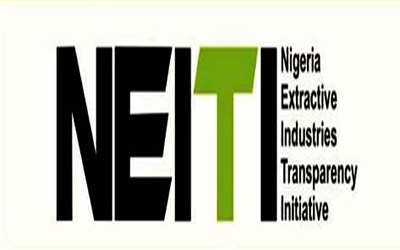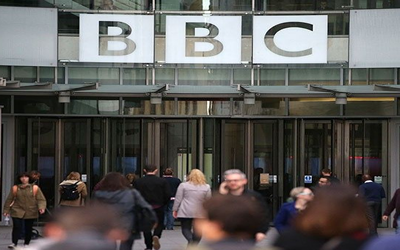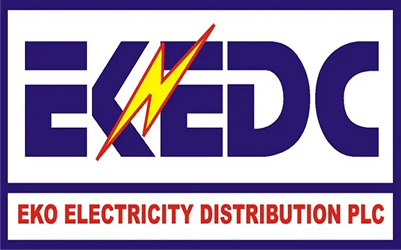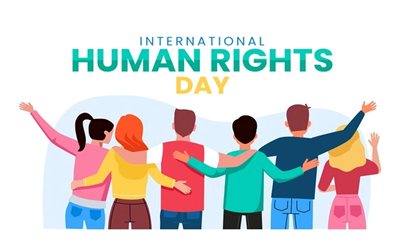By: Nneka Oduada Eze (Esq)
THEME: EQUALITY – REDUCING INEQUALITIES, ADVANCING HUMAN RIGHTS.
Introduction:
The concepts of “human rights” were originally embedded in the concept of natural law, which are the principles of natural right and wrong. In a wide sense, natural law gave birth to the idea of natural rights and natural justice. Thus, it is the idea of natural law which influenced the French Revolution and the American Constitution.[1]
At the international level, the development of the concept of human rights was late as the idea of human rights existed at varying degrees for different periods of time, within some national legal systems and in relation to certain specific topics. Therefore, one of the fundamental achievements of the United Nations is the creation of a comprehensive body of human rights law which serves as a universal and internationally protected code to which all nations can subscribe and all people aspire.
The United Nations has defined a broad range of these internationally accepted rights, including civil, cultural, economic, political and social rights. It has also established mechanisms to promote and protect these rights and to assist states in carrying out their responsibilities.
The foundations of this body of law are the charter of the United Nations and the Universal Declaration of Human Rights[2], adopted by the United Nations General Assembly in 1945 and 1948, respectively. Since then, the United Nations has gradually expanded human rights law to encompass specific standards for women, children, persons with disabilities, minorities and other vulnerable groups, who now possess rights that protect them from discrimination that had long been common in many societies[3].
WHAT ARE HUMAN RIGHTS?
Human rights are rights inherent to all human beings, regardless of race, sex, nationality, ethnicity, language, religion, or any other status. Human rights include the right to life and liberty, freedom from slavery and torture, freedom of opinion and expression, the right to work and education, and many more. Everyone is entitled to these rights, without discrimination.[4]
Human rights are standards that recognize and protect the dignity of all human beings. Human rights govern how individual human beings live in society and with each other, as well as their relationship with the State and the obligations that the State have towards them. Human rights are universal and inalienable. All people everywhere in the world are entitled to them. No one can voluntarily give them up. Nor can others take them away from him or her.
In the Nigerian context, human rights are fundamental rights as contained in chapter iv of the 1999 constitution (as amended) and fundamental rights have been various defined as per ESO JSC in the case of Ransome-Kuti v. A.G Federation[5] as follows;
Fundamental right is a right which stands above the ordinary laws of the land and which in fact is antecedent to the political society itself. It is a primary condition to a civilized existence and what has been done by our constitutions since independence….. is to have these rights enshrined in the constitution so that the rights could be “immutable to the extent of the no immutability” of the constitution itself
2021 INTERNATIONAL HUMAN RIGHTS DAY:
The theme for 2021 international human rights day is EQUALITY – Reducing Inequalities, Advancing Human Rights. The theme relates to ‘Equality’ which is embodied under Article 1 of the Universal Declaration of Human Rights, which provides that:
“All human beings are born free and equal in dignity and rights. They are endowed with reason and conscience and should act towards one another in a spirit of brotherhood”.[6]
All individuals are equal as human beings and by virtue of the inherent dignity of each human person. All human beings are entitled to their human rights without discrimination of any kind, such as race, color, sex, ethnicity, age, language, religion, political or other opinion, national or social origin, disability, property, birth or other status as explained by the human rights treaty bodies. In Nigeria, human rights are constitutionally guaranteed under Chapter IV of the constitution.[7]
PRESENT STATE OF HUMAN RIGHTS IN NIGERIA
As the world celebrates the 2021 international human rights day, there is need to recap on how human rights have been in Nigeria in recent times, below are some of the major events in recent times:
For weeks in October 2020, young Nigerians held nationwide protest denouncing years of extra-judicial killings, torture and other ill-treatment by officers of the Special Anti-Robbery Squad (SARS)[8] unit of the Nigeria Police Force (NPF). These youth-led protests were organized under the banner of End-SARS and quickly gained international support as part of the global movement for the recognition that Black lives matter everywhere.
End-SARS also became an avenue for young people to voice dissatisfaction with the bad governance that has contributed to Nigerian officials’ widespread lack of accountability for misbehavior. The protests ended abruptly on 20 October 2020 when security forces shot at peaceful protesters[9] at Lekki toll gate in Lagos, reportedly killing some persons and injuring many others. Widespread looting and property damage ensued[10], and curfews were declared in several states.
In response to the protests, President Muhammadu Buhari disbanded SARS and promised extensive police reform. Judicial Panels of Inquiry[11] were also set up to investigate allegations of police brutality, including the toll gate incident, and make recommendations for restitution to the government. These, however, are only the most recent in a long line of attempts at addressing human rights violations within the broader context of police reform in Nigeria.
Sadly, as fundamental and inalienable as human rights are, the rate at which same is grossly abused, especially by the law enforcement agencies (Nigerian police force in particular) cannot be overemphasized. It is so heart trenching that the respect for human right by the law enforcement agencies (particularly the police) is relatively poor in Nigeria. A clear evidence of such played our before, during and the aftermath of the end-sars protest that took place in 2020 and extensively 2021. Since the protest, nothing has changed and it appears that we as a nation are yet to learn from the daring consequences of the dangers of the consistent and blatant abuse of the rights of each citizen. It is also pitiable that the government has made a U-turn to discredit the findings of the Judicial Panel of Inquiry and out rightly rejected the findings therein.
RECOMMENDATIONS AND CONCLUSION
The issues of fundamental rights enforcement have continued to feature prominently in our courts as there is increasing consciousness in Nigeria of the sanctity and need to protect fundamental rights. The chief justice of Nigeria is empowered to make/amend the fundamental rights (enforcement procedure rules). This duty is conferred upon the chief justice by virtue of the provisions of the constitution[12]. The amendment of the fundamental rights (enforcement procedure rules) is long overdue. However, for something as fundamental and crucial as this rule that prescribes the procedure of enforcing a person’s fundamental right in Nigeria is, it is being delayed without any justification as to what is hindering the amendment.
Furthermore, the Federal high court recently came up with the idea of payment of cost relating to enforcement of fundamental right actions where there is a delay in filing a process within a particular time frame. In as much as there is the need to dispense with actions speedily as justice delayed is justice denied, this action can be likened to the Federal High Court back-flipping our adjudication of justice system to the past administration. This is not supposed to be the case as rules making the process of obtaining justice seamless/effortless, not making it a herculean task.
Although it is understandable that a lot of litigants uses the institution of enforcement of fundamental right enforcement as a shield in protecting them from certain wrong they have committed and sometimes reluctantly pursuing the action to the just conclusion of same timeously, it is however the age long principle that instead of one innocent person to suffer wrongly for an offence, it is better to let ten guilty persons go free. Those trying to ensure that their rights are preserved and not infringed upon should not be made to suffer for the wrong doing of others.
In conclusion, human rights are inalienable rights that accrue to every citizen of a country and one that deserves the maximum unhindered protection from infringement. It should always be guarded jealously as the respect for human rights is the bedrock of every civilized economy. Those in power are duty bound to ensure that they tackle the root causes of gross abuse of human rights which give rise to conflict and crisis, by addressing grievances, eliminating inequalities and exclusion and allowing people to participate in decision-making that affect their lives and they should make conscious visible effort of safeguarding the fundamental rights of its citizens. It is our hope as a Nation that 2022 will be a year worth remembering especially with respect to the enforcement and safeguarding of each individuals fundamental human rights.
[1] Professor Kehinde Mowoe: Constitutional Law in Nigeria, Malthouse Law Books (2008) p269
[2] https://www.un.org/en/about-us/universal-declaration-of-human-rights. Assessed on December 10, 2021
[3] https://www.un.org/en/global-issues/human-rights. Assessed on December 10, 2021
[4] Supra, note 2.
[5] (1985) 2 NWLR , 211 SCN
[6] https://www.un.org/en/about-us/universal-declaration-of-human-rights. Assessed on December 10, 2021
[7] See chapter IV, particularly sections 33-44 of the Constitution of the Federal Republic of Nigeria, 1999 (as amended).
[8] https://www.aljazeera.com/features/2020/10/22/sars-a-brief-history-of-a-rogue-unit. Assessed on December 10, 2021
[9] https://edition.cnn.com/202/11/21/africa/nigeria-shooting-lekki-toll-gate-intl/index. Assessed on December 10, 2021
[10] https://www.premiumtimesng.com/news/headlines/422983-how-hoodlums-took-advantage-of-endsars-wreaked-havoc-in-Lagos.html (Assessed on December 10, 2021)
[11] https://eie.ng/weekly-updates-on-endsars. Assessed on December 10, 2021
[12] Section 46 (3) of the Constitution of the Federal Republic of Nigeria, 1999 (as amended)





